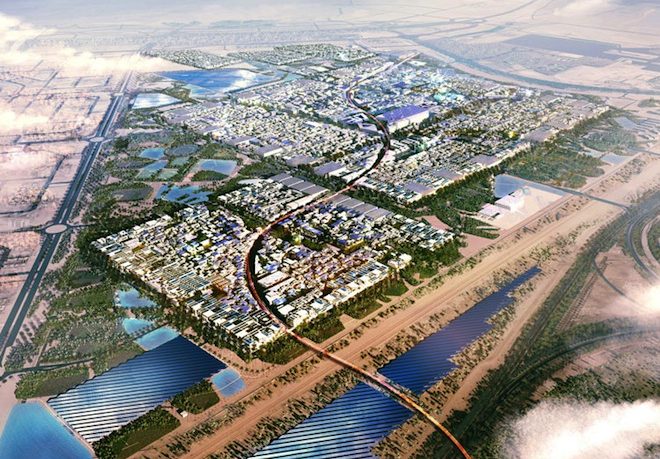- Masdar City is developing a pilot green hydrogen project with the Abu Dhabi Department of Energy, Etihad Airways, Khalifa University of Science and Technology, Siemens Energy, Marubeni, and the Lufthansa Group.
- The solar-powered electrolyzer will be built in Masdar City, Abu Dhabi, with the aim of producing green hydrogen and sustainable fuels for road transport, aviation and shipping.
- Masdar City is currently under construction in Abu Dhabi and is expected to become one of the world’s most sustainable urban communities.
“Masdar has been actively evaluating opportunities to develop green hydrogen projects over the past year and now we have decided to take our first step, in a phase in which the market is not developed yet,” Faye Al Hersh, a strategic technology specialist for Masdar, told pv magazine. “The demonstrator will be in the megawatt range and should be operational within two or three years.”

The first phase of the demonstration project will focus on the production of green hydrogen for passenger cars and buses in the Masdar City area. The companies will also build a kerosene synthesis plant to convert green hydrogen into sustainable aviation fuel. In the second phase, they will explore the production of decarbonized fuels for the maritime sector.
Masdar aims to create initial domestic demand for hydrogen and build a local green hydrogen economy.
“We would also like to create a green hydrogen knowledge base in Abu Dhabi with links and partnerships to international hydrogen programs, enable off-takers to significantly reduce their carbon footprint, and ultimately position Abu Dhabi to become a key player in the hydrogen economy” Al Hersh said. “The UAE has the relevant domestic off-takers and is a politically stable, reliable partner to many offtake countries and companies around the world, allowing it to potentially export sustainable fuels. It is also geographically located at the mid-point of trade routes that serve major clean energy offtake markets.”
The demonstration project represents the first concrete step under a strategic partnership between Mubadala Investment, the sole shareholder of Masdar, and Siemens Energy. They plan to jointly accelerate green hydrogen capabilities in Abu Dhabi.
The ultimate goal is to scale up clean hydrogen production, including green hydrogen production via large-scale solar plants, in order to accelerate the adoption and use of hydrogen in major sectors in the United Arab Emirates, while positioning Abu Dhabi as a reliable global supplier of hydrogen.
“Currently it is difficult to provide a precise timeframe,” Al Hersh said. “But I believe it will happen very soon.”
Projects planned for the desert offer considerable advantages over other locations. In the desert, there is plentiful sunshine, no clouds, and lots of available space, which means solar parks can be easily and cheaply built.
“We would like to capitalize on this advantage,” Alexander Ritschel, Masdar’s head of technology, told pv magazine.

Ritschel said that economies of scale will play a crucial role in future green hydrogen production, regardless of the location.
“The question is how quickly can we ramp up the roll-out of some renewable energy-powered hydrogen plants,” he said. “And this will depend on how we will respond to a market demand which right now is mainly driven by policies.”
Several governments throughout the world are already introducing incentives and obligations for hydrogen consumption.
“I think that there is no doubt that there is a willingness to pay an additional premium for a fuel that comes without CO2 emissions,” Ritschel said.
Price reductions for green energy technologies and the creation of industrial demand will have to be achieved simultaneously.
“We can’t put all the burden on the technology development, improving electrolysis or PV power generation will not be sufficient alone,” Ritschel said. “We need to have policies that stimulate demand and future investments will result in improved system efficiency and lower prices.”
Masdar is evaluating different hydrogen generation technologies, as the costs of different approaches are falling as system performance continues to improve.
“We are tying ourselves with no particular technology at the moment, which corresponds to Masdar’s overall approach consisting of selecting the most suitable option depending on the characteristics of each specific project,” Ritschel said. “Currently you can produce viable green hydrogen in only a few locations in the world, and the Emirates is one of them.”
Masdar will focus on domestic hydrogen projects over the next few years, after which it may consider expanding its activities in overseas markets.
Author: Emiliano Bellini
This article was originally published in pv magazine and is republished with permission.















